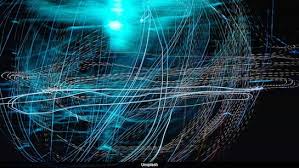
In a major scientific breakthrough, researchers have successfully transformed light into a supersolid—a new phase of matter that combines properties of both superfluids and solids. This discovery, published on March 5 in Nature, has profound implications for quantum computing, materials science, and energy storage. Scientists at CNR-INO, CNR-Nanotec, and the University of Pavia have demonstrated that this light-based supersolid maintains a coherent quantum droplet structure while allowing friction-free flow, a property unique to superfluids. This milestone opens up new possibilities for understanding light-matter interactions and may lead to cutting-edge photonic applications in the future.
Key Highlights of the Discovery:
1. What is a Supersolid?
A supersolid is a fascinating state of matter that combines the properties of both a solid and a superfluid. It features an organized crystalline structure but can flow without any friction, much like a superfluid. This newly discovered supersolid is made up of light, which challenges the conventional idea of light being just pure energy.
2. How Was the Light-Based Supersolid Created?
- Researchers used semiconductor nanostructures to manipulate light into a supersolid phase.
- The experiment involved quantum droplets arranged periodically, allowing them to flow without disruption while maintaining their spatial arrangement.
- This is a novel approach, differing from previous atomic-based supersolids.





